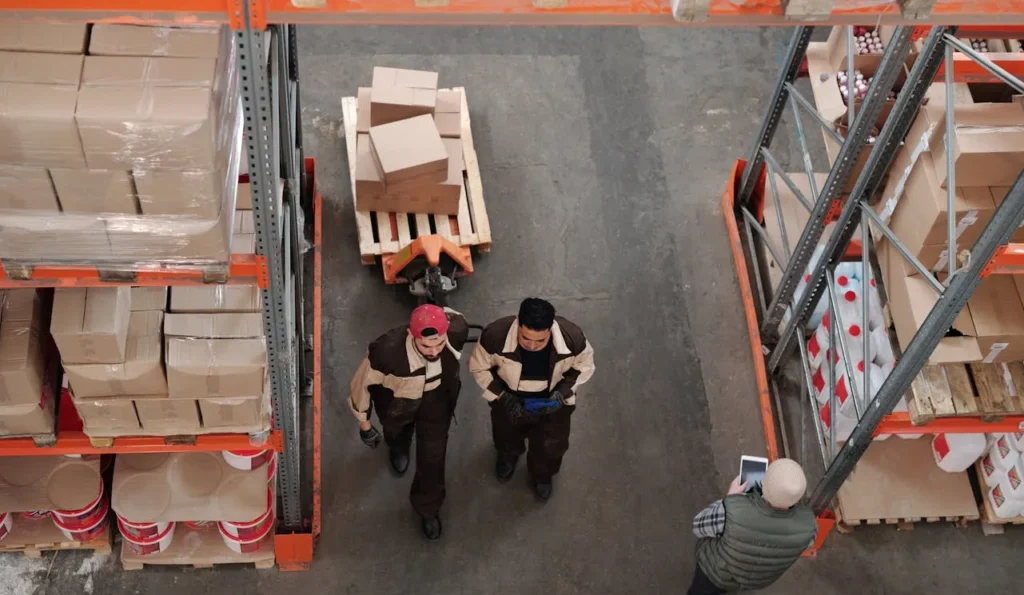
The Role of Technology in Enhancing Workplace Safety and Efficiency in Physical Operations
In today’s fast-paced and ever-evolving business landscape, technology is becoming the driving force behind the transformation of physical operations. Leaders across industries such as transportation, construction, and field services are increasingly integrating advanced technological solutions into their business strategies. These innovations are not only modernizing workplaces but are also attracting a new generation of workers while simultaneously enhancing safety, security, and efficiency.
According to the newly published State of Connected Operations Report titled “Building for the Next Generation: Workplace Trends in Physical Operations” by Samsara, a pioneer in Connected Operations Cloud®, technology is revolutionizing the way businesses operate. The study includes insights from 1,550 leaders across seven countries, including 150 in Mexico, and highlights the substantial role that digital transformation is playing in shaping workforce trends.
The Growing Need for Enhanced Workplace Safety
As industries reliant on physical operations continue to evolve, workplace safety remains a primary concern for both employers and employees. According to the report, more than two-thirds (68%) of leaders in Mexico and 71% globally frequently receive feedback from their workforce regarding the need for increased investments in safety and security.
One of the most pressing concerns among workers is the demand for improved emergency response protocols. Safety in high-risk industries such as construction and transportation is paramount, yet many organizations have yet to fully implement the necessary technologies to mitigate risks. Currently, only 30% of Mexican organizations use remote or automatic vehicle immobilization, and only 36% have integrated panic or emergency buttons for drivers, despite their proven effectiveness in emergency situations.
Recognizing these challenges, Mexican business leaders are taking decisive steps to address workplace safety concerns. The report indicates that 71% of companies in Mexico plan to make moderate to significant investments in safety technologies over the next five years, surpassing the global average of 68%. This proactive approach aims to bridge existing gaps and provide a safer working environment for employees.

Among the most promising technological advancements in workplace safety are IoT-enabled safety devices, automation tools that reduce worker exposure to hazardous environments, and predictive analytics for risk prevention. These innovations not only protect employees but also enhance operational efficiency by minimizing downtime due to accidents and improving overall risk management.
Technology’s Role in Attracting and Retaining Talent
The challenge of attracting and retaining skilled workers remains a significant concern for industries that rely on physical operations. In many sectors, such as transportation and construction, finding and maintaining a qualified workforce has been historically difficult. However, technology is proving to be a game-changer in addressing this issue.
Brendali López, Marketing Director at Samsara in Mexico, emphasizes the positive impact of technology on workforce perception and retention. “It’s no secret that the job market can be challenging in industries like transportation, construction, and field services. However, we’re seeing how technology is making a huge difference in how younger talent perceives their career opportunities. Our research shows that technology is not only making these industries more attractive, but it’s also contributing to long-term talent retention. The return on investment is significant, and there’s still a lot of potential left to explore, as many companies are just beginning their digital transformation.”
The report supports this claim, revealing that nearly three-quarters (74%) of leaders in Mexico and 85% globally agree that modern technology tools have made their industries more appealing to younger workers. The ability to leverage advanced digital tools, automation, and data-driven insights is becoming a key factor in recruiting the next generation of employees.
Additionally, many organizations are reporting improvements in employee morale and productivity as a result of technology adoption. Enhanced workplace safety, streamlined operations, and greater job satisfaction are contributing to lower turnover rates, creating a more stable and engaged workforce.
Investing in Security and Protection Technologies
The shift toward a more tech-driven work environment is also influencing how organizations approach security and protection. The report highlights that leaders in Mexico are prioritizing investments in security technologies at an impressive rate, with a strong emphasis on solutions that enhance workforce protection.
Key investments include:
- IoT-enabled safety devices: These devices provide real-time data and monitoring capabilities, allowing companies to proactively address potential risks before they escalate into serious incidents.
- Automation for risk reduction: By implementing automated processes, organizations can reduce worker exposure to hazardous conditions, thereby minimizing accidents and injuries.
- Predictive analytics for safety: Advanced data analytics can help identify patterns and predict potential safety hazards, allowing businesses to take preventive measures in advance.
With 71% of Mexican business leaders planning to invest in these technologies over the next five years, it is evident that there is a growing recognition of the crucial role that digital tools play in workplace security.
Financial Returns and Operational Efficiency Through Technology
The adoption of security-focused technology is not only enhancing safety but is also yielding significant financial benefits. The report states that nearly one-third (31%) of Mexican business leaders indicate that their investments in such technologies have resulted in savings exceeding $20 million.
Beyond financial returns, technological advancements are empowering workforces by allowing employees to focus on higher-value tasks. An overwhelming 99% of respondents in Mexico confirmed that technology has enabled their workforce to prioritize areas such as preventative maintenance, safety reviews, and skill development. This shift is fostering a more knowledgeable and capable workforce, contributing to long-term business growth and sustainability.
Another notable trend in Mexico is the widespread adoption of online learning platforms. A remarkable 80% of organizations have already integrated these platforms into their training programs, recognizing their effectiveness in:
- Knowledge retention: Digital learning tools ensure that employees retain critical safety and operational knowledge more effectively than traditional methods.
- Onboarding efficiency: New employees can be trained quickly and consistently through structured online modules.
- Employee retention: Providing workers with access to continuous learning and skill enhancement opportunities contributes to job satisfaction and long-term retention.
The Future of Connected Operations
The findings from Samsara’s State of Connected Operations Report underscore the transformative power of technology in physical operations industries. By embracing digital solutions, organizations are not only improving safety and efficiency but are also positioning themselves as attractive employers for the next generation of workers.
As industries continue their journey toward digital transformation, it is clear that technology will play an even more integral role in shaping the future of work. The emphasis on IoT, automation, predictive analytics, and workforce training will continue to drive progress, ensuring that businesses remain competitive and resilient in an increasingly tech-driven world.
For those interested in learning more about the trends shaping the future of workplace safety and efficiency, the full report, “Building for the Next Generation: Workforce Trends in Physical Operations,” provides in-depth insights and recommendations.
About the Research
The survey was conducted by independent research firm Wakefield Research between October 24 and November 4, 2024. A total of 1,550 brick-and-mortar operations leaders from seven countries—United States, Mexico, United Kingdom, Ireland, France, Germany, and Canada—participated in the study. In Mexico, 150 business leaders were surveyed. The research was conducted online and translated into local languages where necessary. The global findings represent an aggregated average of all responses.
About Samsara
Samsara is the pioneer of the Connected Operations Cloud®, a platform that enables organizations to harness Internet of Things (IoT) data to generate actionable insights and optimize operations. With tens of thousands of customers across North America and Europe, Samsara serves leading organizations in construction, transportation and warehousing, field services, manufacturing, retail, logistics, and the public sector. The company’s mission is to enhance the safety, efficiency, and sustainability of the operations that drive the global economy.
Samsara is a registered trademark of Samsara Inc. All other brand names, product names, or trademarks mentioned in this report are the property of their respective own

